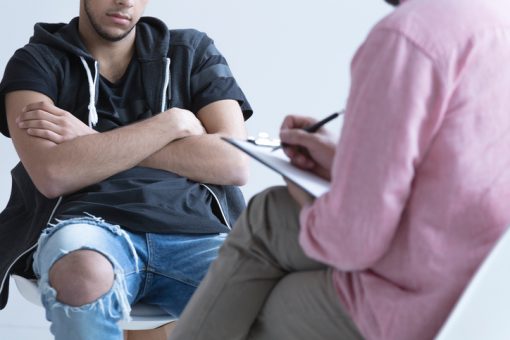Generalized anxiety disorder (GAD) is characterized by excessive worry over everyday occurrences that usually do not produce fear in the general population. The worrying is almost impossible to control and can often negatively affect your romantic relationships.
Anxiety and Romantic Relationships
Romantic relationships are challenging. A healthy and prosperous romantic relationship requires patience, communication, hard work and empathy, and both individuals must be independently happy. Mental health disorders such as anxiety can interfere with a relationship if the individual is not aware of their signs and symptoms or if they allow their mental health disorder to go untreated. However, mental health disorders such as anxiety, in particular, do not have to put such a strain on your relationship. By understanding anxiety and how it affects both your partner and your relationship, you can love each other more deeply and connect in a new way. If you are struggling with anxiety, it is common to continuously ask yourself questions and doubt your relationship.
There are many anxiety-motivated behaviors individuals with anxiety often encounter in relationships:
- Being angry and/or irritable
- Being controlling
- Being distracted and having trouble focusing
- Coming across as overly critical
- Avoidant or passive-aggressive behavior
- Perfectionism
Anxiety Disorders and Co-Dependency in Relationships
Many individuals with anxiety disorders have an intense desire for closeness to their romantic partners depending on them regularly for support and reassurance, which often leads to overdependence and co-dependent behaviors. In addition to being overly dependent, individuals with a generalized anxiety disorder also tend to overthink, plan for the worst-case scenarios and have an intense fear of rejection. These traits can place an enormous amount of strain on a relationship and can make both partners feel inadequate, stressed and overworked.
Avoidance in Relationships
On the other end of the spectrum, some individuals with anxiety disorders become overly independent and detached from their partner and their emotions. They may avoid negative emotions by not revealing their feelings, opening up or being vulnerable. An individual who is avoidant of close relationships may be described as cold, emotionally unavailable, lacking empathy or even stand-offish. This can create a lot of negative energy and distance in a romantic relationship, which often leaves the other partner feeling inadequate and unwanted.
Managing Anxiety in Your Romantic Relationship
It is up to both you and your partner to understand the anxiety present and how to manage it. One of the most important things to keep in mind is that your partner is not your therapist, and should never act as so. We often want to “fix” our loved ones, but instead of acting as a therapist, we should encourage our partners to seek professional help.
Apart from going to therapy, talk about anxiety openly, honestly and directly with your partner. Do not try to hide it or be shameful of it, but rather discuss your feelings. Managing your reactions is an important coping skill to navigate when your partner’s anxiety becomes overwhelming for the relationship. When your partner talks about his or her anxiety in the context of your relationship, it’s easy to take it personally and become upset. It’s easy to interpret the anxiety as selfishness, rejection or an attempt to create distance. Seek professional help to help manage this and process it, and especially if you see signs of co-dependency in your relationship. Discovery Mood & Anxiety Program is here to help you. Contact us today.
